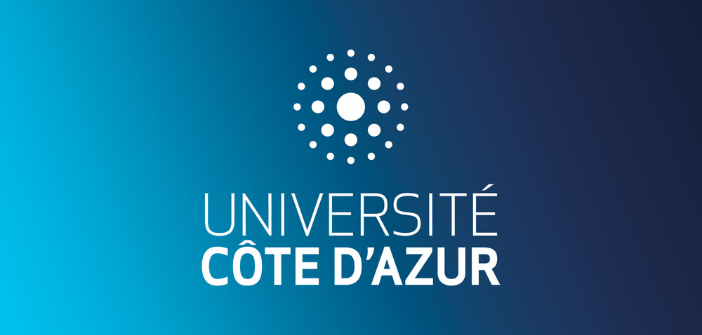On Monday, September 20th, the University of Côte d’Azur held its start of the academic year and also showcased the lessons learned from the past year and the new initiatives for the year to come.
It is a special return for the University of Côte d’Azur, the first fully in-person start since the Covid-19 health crisis.
The Côte d’Azur University first reflected on the past year, where the limitations of distance learning were notable. The return to normalcy is therefore good news for the quality of education, marking the return of smiles for both students and teachers.
A University of Excellence Initiative
Since 2016, the University of Côte d’Azur has been one of eight French universities labeled as “initiative of excellence”.
Since January 1, 2020, it has brought together 17 major academic actors around the historic university core to build one of the 10 major research-intensive French universities.
Implementation of Innovative Projects
Firstly, the transformation of DUT (University Diploma of Technology) into BUT (Bachelor’s University of Technology) was presented. These new university bachelor’s degrees span over 3 years through a national program taught with “innovative pedagogy” and “university and technological education” to ultimately obtain a national university diploma.
The presentation of the European project OpenSkills@UCA was also made. This project came to life thanks to the support of the European Union with the European Social Fund. It allowed for the equipping of 10 TD rooms and 10 lecture halls for the digitization of training and teaching practices to better adapt to students’ learning rhythms and facilitate monitoring by teachers.
The University of Côte d’Azur announced the implementation of a new student network called Link. This online tool offers various services to alumni, students, professors, staff, and businesses.
They can follow University of Côte d’Azur news, participate in network events, apply for offers dedicated to students and graduates, browse the directory of companies/members of the network, and join thematic groups.
The new center dedicated to entrepreneurial culture development called “ICE” (Innovation Center for EntrepreneurShip) was also introduced. ICE’s program consists of three axes: business creation, scientific entrepreneurship, and the development of transversal entrepreneurial skills.
Measures to Foster Success in Undergraduate Studies
The University of Côte d’Azur aims to maximize the success of Azurian students in their bachelor’s studies. To this end, the UCA project focuses on transforming students’ first academic cycle and future professions to improve this success.
Tut’Top, an innovative and effective tutoring system, was also established by the University of Côte d’Azur to allow willing students to help those in need. This support can be pedagogical, social, administrative, or logistical. It helps combat social isolation and student precarity while maintaining quality educational continuity.
New Campus Life
In response to the health crisis, the University of Côte d’Azur organized a proactive health policy on campuses.
Temporary vaccination campaigns and mobile testing points have been put in place on many campuses for the start of the academic year. To raise awareness of respecting barrier gestures, students are also deployed.
To ensure the best follow-up of students during this difficult period, the University Health Service team has been strengthened with the addition of two psychologists.
To educate students on all sexual health-related information, “sexual health villages” have been created.
Proper psychological and social support is one of the priorities of the University Côte d’Azur, which has invested more than 70% of its budget.
This Monday, the university administration also presented a recovery plan of 54 million euros for the energy renovation of campuses.
Indeed, the university won the call for projects launched on September 5, 2020, by the State as part of France Relance to renovate campuses and accelerate their energy transition. Eight campuses are involved in this recovery plan, with work to be completed by the end of 2023.
A new campus has emerged in Cannes. The Georges Méliès campus hosts about 1,000 students and is dedicated to creative industries. It is equipped with state-of-the-art technology, including conference rooms, lecture halls, and specialized premises for audiovisual creation.
The University has been awarded the “Generation 2024 ” label by the Ministry of Higher Education, Research and Innovation, and the Ministry of Sports. This label aims to support the development of sports practice in higher education. In parallel, the University has committed 3 million euros across all campuses to enhance sports practice.
Culture and art are also making a return on the Côte d’Azur, as the university intends to play a major role on the Azurienne scene through the UCARTS program. This program offers creative workshops and opportunities to participate in cultural events in the region.
An Opening to the World
The University of Côte d’Azur is involved in several international projects.
The Ulysseus program is one of them. This program offers students the opportunity to build their path by benefiting from numerous opportunities within the university but also with the five other members of the project (University of Seville, University of Genoa, Technical University of Innsbruck, University of Applied Sciences Haaga-Helia).
Virtual mobility networks are also developed to allow a large number of Azurian students access to an international experience. Exchanges between the European Universities Ulysseus, Franco-Russian, and Laval in Quebec will therefore be possible this year.
A Socially Responsible University
Inclusion policy is one of the University of Côte d’Azur’s priorities.
Gender equality will take on a new dimension with a plan consisting of about thirty actions to raise awareness of the need for equality, both professionally and socially.
Engaged against all forms of discrimination, the University is committed to addressing work/study-related suffering linked to any form of discrimination, whether it be ethno-racial, religious, sexual orientation, gender, disability, physical appearance, age, or political opinion.
The university also puts a strong emphasis on improving work life quality and addressing psychosocial risks.



